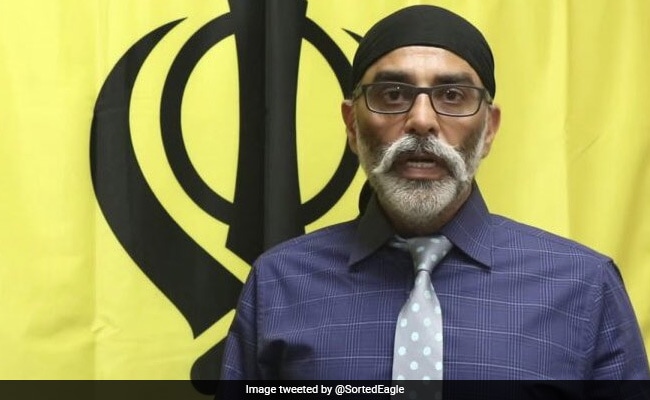
Gurpatwant Singh Pannun: The home ministry had in July 2020 declared Pannun a terrorist. (file)
New Delhi:
Acting against Gurpatwant Singh Pannun, Khalistani terrorist and head of the banned separatist organisation Sikhs for Justice, the National Investigation Agency today seized his house in Punjab’s Chandigarh and confiscated land owned by him in Amritsar. Pannun faces 22 criminal cases in Punjab, including three of sedition.
The confiscated properties include 46 Kanal of agricultural property in his ancestral village, Khankot, located on the outskirts of Amritsar district. Another property, house no 2033 in Sector 15-C, Chandigarh, has also been seized. Pannu has now lost rights to the property, and it now belongs to the government. In 2020, his properties were attached, which meant he could not sell the property.
He had recently threatened Indo-Canadian Hindus to leave the country and return to India.
In a viral video amid a massive diplomatic row between the two countries over the murder of another Khalistani terrorist, Hardeep Singh Nijjar, Pannun was heard saying, “Indo-Canadian Hindus, you have repudiated your allegiance to Canada and Canadian Constitution. Your destination is India. Leave Canada, go to India.”
“Pro-Khalistan Sikhs have always been loyal to Canada. They have always sided with Canada, and they have always upheld the laws and the Constitution,” he added.

Pannun also urged all Canadian Sikhs to gather in Vancouver on October 29 for a referendum to vote on whether the Indian High Commissioner Sanjay Kumar Verma was responsible for Hardeep Singh Nijjar’s killing.
The home ministry had in July 2020 declared Pannun a terrorist, and requested an Interpol red notice for him. However, Interpol has twice rejected India’s request to issue a Red Corner Notice on terror charges against him, citing insufficient information.
Pannun’s outfit advocates for a religion-based separate state carved out from Punjab and many neighbouring areas in India, to be known as ‘Khalistan’. It has also conducted “Punjab Independence Referendum” in Canada and Australia. The Indian government has called the so-called referendums ‘unfortunate’ and asked the Canadian government to act against it.




